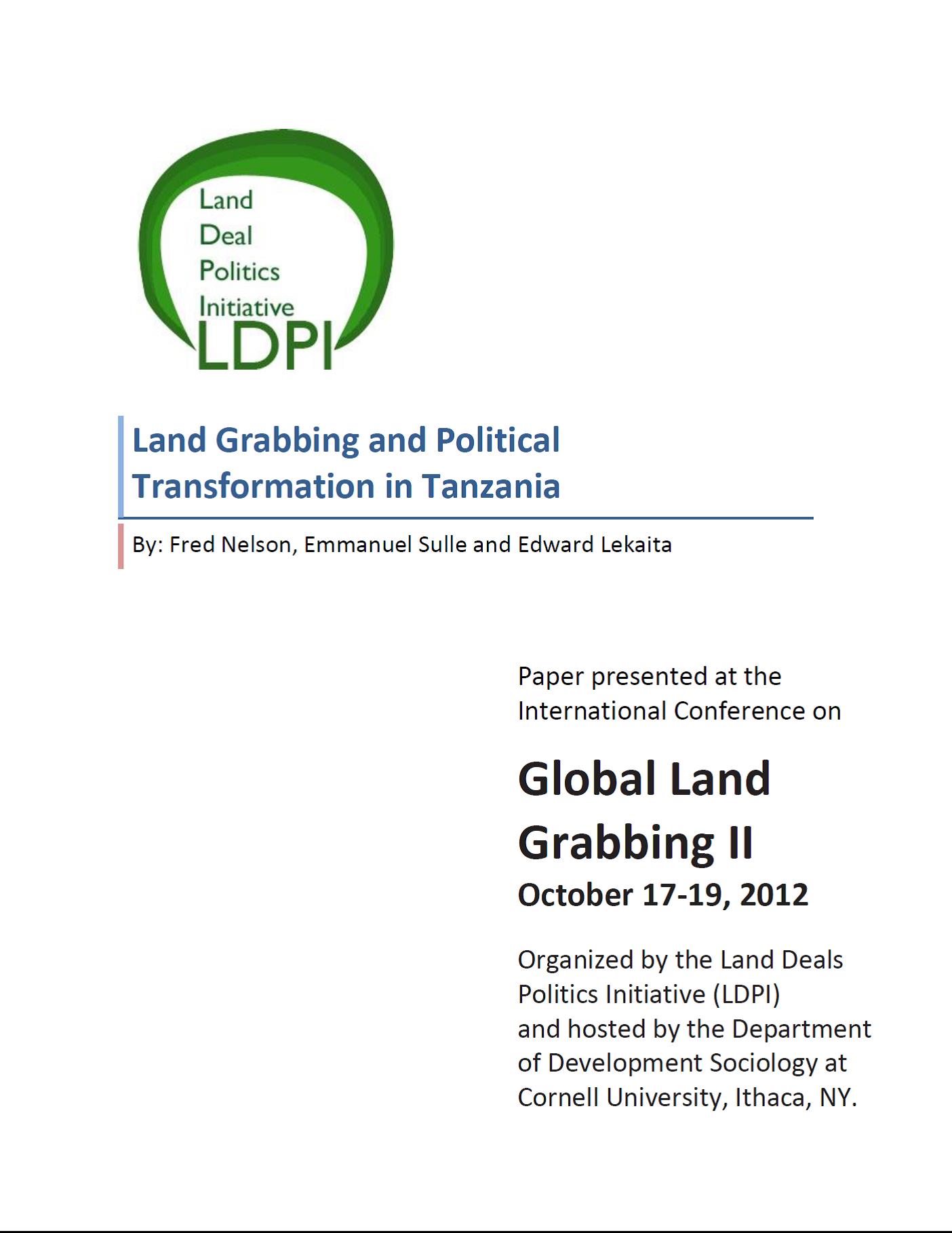Resource information
Like many of its neighbors, Tanzania is experiencing a well-documented surge of land grabbing related to investments in industries such as agriculture, biofuels, tourism, hunting, and forestry. Land grabbing in Tanzania is best understood and analyzed as both a symptom of and contributor towards wider political economic processes of change occurring in Tanzania. These changes involve the collapse of single-party hegemony of the ruling party and affiliated elites, the increasing influence of civil society and media organs, and a more open and participatory public political and policy discourse. This paper attempts to contextualize land grabbing within these contemporary macro-political transformations, and to examine how these shifts are shaping land grabs at a variety of local and regional scales with their diverse causes and drivers. The case studies demonstrate the way that new pluralist dynamics in Tanzania are creating new opportunities for local mobilization and resistance and greater agency for influencing the outcome of land disputes.


